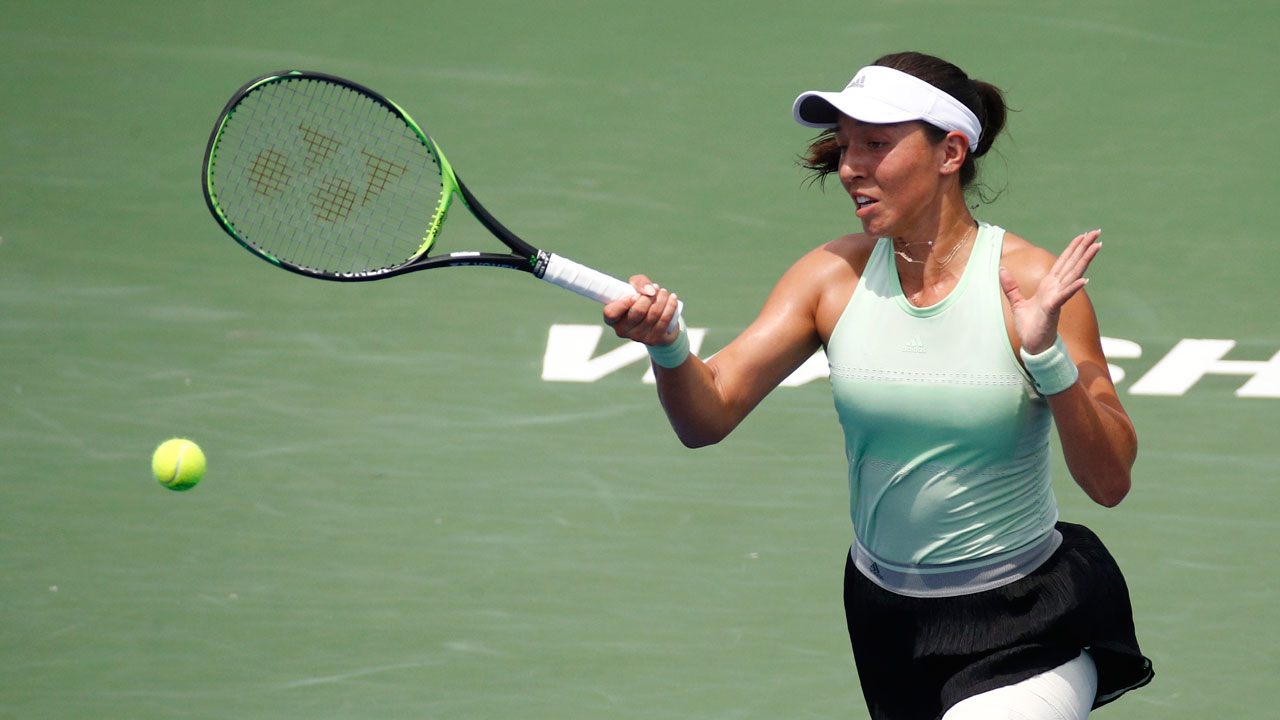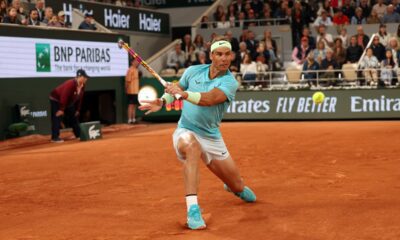- Pegula acknowledged the progress made in equal pay at Grand Slam tournaments
- Women’s tennis players often dominate the Forbes Highest-Paid Female Athletes List
- Forbes Highest-Paid Female Athletes List is dominated annually by WTA Tour
Jessica Pegula’s gender pay gap concerns in tennis is something that the WTA is yet to address despite being a sport that boasts some of the highest-paid female athletes.
In an interview with Forbes.com, Pegula acknowledged the progress made in equal pay at Grand Slam tournaments but emphasized the need to address the disparity across the sport.
While women’s tennis players often dominate the Forbes Highest-Paid Female Athletes List, their earnings primarily stem from sponsorship deals.
The Forbes Highest-Paid Female Athletes List is dominated annually by WTA Tour stars. In 2022, Naomi Osaka topped the list, followed by the now-retired Serena Williams in second place.
British tennis star Emma Raducanu came in fourth place, Iga Swiatek in fifth place, Venus Williams in sixth place, Coco Gauff in seventh place, and Pegula ninth.
The majority of these athletes’ income came from sponsorship agreements, but they are still far from matching the earnings of their male counterparts.

Jessica Pegula. Photo/USopen.org
For example, Osaka’s $130 million salary in 2022 was significantly less than that of Lionel Messi, the top player overall, who made $130 million.
Roger Federer’s $90.7 million earnings ranked highest among men’s tennis players.
When it comes to tennis prize money, the situation is similar because there are currently only a few events, such as the Australian Open, Roland Garros, and Wimbledon.
Jessica Pegula Gender Pay Gap Tennis
Pegula attributes the pay gap to insufficient marketing efforts for women’s tennis. She expressed hope that the WTA’s recent commercial partnership with CVC Capital Partners.
“Women’s tennis is a huge sport for the highest-paid female athletes. But at the same time, the pay gap is still very big,” she said.
“We always talk about how it is equal in the Slams but that’s four tournaments a year. It is not equal in a lot of the other tournaments.”
One of the most frequent criticisms leveled against women’s tennis is that the sport doesn’t bring in enough money from sponsors to ensure fair compensation across the board.
Pegula thinks it all comes down to bad marketing, but since the WTA and CVC Capital Partners signed a business agreement in March last year, the world No. 5 is optimistic that things will improve.
The agreement includes a $150 million investment which will revamp marketing strategies and promote the sport more effectively.
“I think we need to do better while marketing for our game…getting more stories out there of all the incredible players we have,” the American heir to a billion-dollar fortune said.
Despite significant progress in recent years, the pay gap in professional tennis remains a contentious issue.
Female tennis players, including athletes like Serena Williams and Naomi Osaka, have consistently raised their voices against the disparity in prize money and overall earnings compared to their male counterparts.
In 2018, Billie Jean King, a legendary figure in women’s tennis, penned an open letter calling for “equal pay for equal work” and highlighting the ongoing struggles faced by female athletes.

Jessica Pegula at the Citi Open. Photo/Sportsnet
She emphasized the need for consistent equal pay across all tournaments, not just the Grand Slams, where equal prize money has been in place since 2007.
With the WTA, the governing body of women’s professional tennis, taking steps to address the pay gap by securing a $150 million investment from CVC Capital Partners; there is a light at the end of the tunnel.
This partnership aims to enhance marketing efforts and attract more sponsorships, potentially leading to increased earnings for female players.
By enhancing marketing efforts and showcasing the talent and achievements of female tennis players, the WTA can attract more sponsorships and bridge the pay gap.
This is one of the strategies Pegula is hopeful about in ensuring that women’s tennis receives the recognition and financial rewards it deserves.
















You must be logged in to post a comment Login